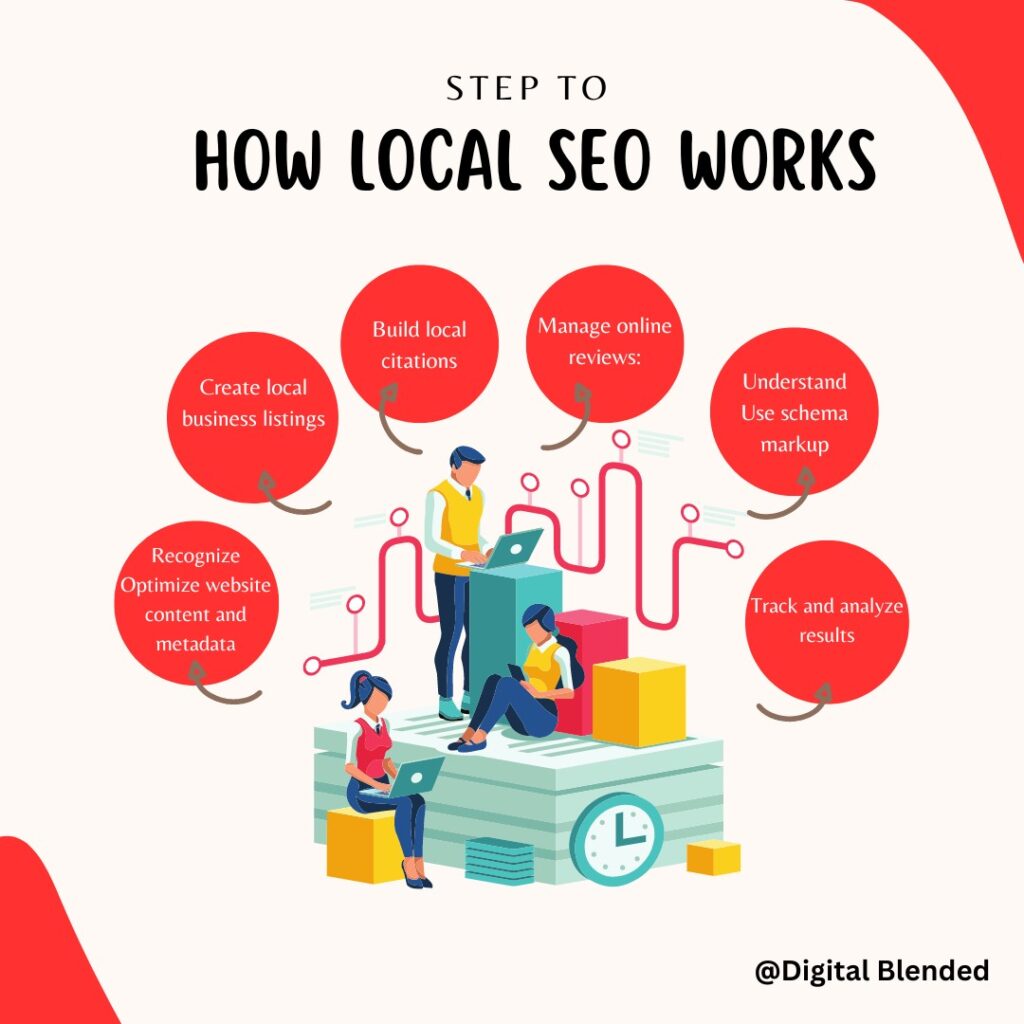Having a digital presence has become an essential part of any business strategy in today’s world, regardless of its size. However, small businesses face a unique set of challenges when it comes to online visibility. This is where local SEO comes into play.
In this blog post, we will discuss the importance of local SEO for small businesses and provide a comprehensive guide on how to get started with local SEO. We will cover the following topics:
Introduction
Small businesses face unique challenges when it comes to online visibility. Unlike larger companies with national or international reach, small businesses typically serve a specific geographic area. This is where local SEO comes in. Local SEO helps small businesses optimize their online presence to attract customers in their local area.
Local SEO involves a combination of strategies, such as optimizing the website’s content and metadata, creating local business listings, building local citations, and more. By prioritizing local SEO, small businesses can improve their online visibility, attract new customers, and stay competitive in their local market.
The Importance of Local SEO
Local SEO is important for small businesses because it helps them attract new customers in their local area. According to a study by Google, 46% of all searches have local intent. This means that people are actively looking for businesses in their local area when they search online. By optimizing their online presence for local search, small businesses can appear in front of potential customers when they’re most likely to make a purchase.
In addition to attracting new customers, local SEO can also help small businesses stay competitive in their local market. When customers search for businesses in their area, they’re likely to see a list of local businesses that match their search query. By optimizing their online presence for local search, small businesses can improve their chances of appearing at the top of these search results and outcompeting their local competitors.

How Local SEO Works
Local SEO involves several key elements, each of which plays a crucial role in improving a small business’s online visibility.
The first element is optimizing the website’s content and metadata. This involves using relevant local keywords throughout the website’s content and metadata to make it clear to search engines what the website is about and where it’s located.
The second element is creating local business listings. This involves creating business listings on popular online directories, such as Google My Business, Yelp, and Bing Places. These listings provide important information about the business, such as its address, phone number, and hours of operation, and can help it appear in front of potential customers when they search online.
The third element is building local citations. A citation is any online mention of a business’s name, address, and phone number. By building citations on reputable websites, small businesses can improve their online authority and help search engines understand that they’re legitimate businesses in their local area.
Benefits of Local SEO
The benefits of local SEO are numerous. By optimizing their online presence for local search, small businesses can improve their online visibility, attract new customers, and stay competitive in their local market.
One of the main benefits of local SEO is improved visibility. By appearing at the top of local search results, small businesses can increase their visibility and make it easier for potential customers to find them online.
Another benefit of local SEO is higher search engine rankings. By optimizing their website’s content and metadata for local search, small businesses can improve their search engine rankings and appear higher in search results.
Finally, local SEO can also lead to increased website traffic. By appearing at the top of local search results, small businesses can attract more visitors to their websites and potentially convert them into paying customers.
Common Local SEO Mistakes to Avoid
Despite the importance of local SEO, many small businesses make common mistakes that can hurt their online visibility. Some of these mistakes include:
- Not optimizing for local keywords
- Neglecting to claim their Google My Business listing
- Failing to keep local business listings up-to-date
- Ignoring online customer reviews
To avoid these mistakes, small businesses should prioritize local SEO and take steps to optimize their online presence for local search.
How to Get Started with Local SEO
To get started with local SEO, small businesses should follow these steps:
- Conduct keyword research to identify relevant local keywords
- Optimize their website content to include these local keywords and provide value to their audience
- Create and optimize their Google My Business listing, providing accurate and complete information about their business
- Build local citations on relevant directories and websites, ensuring consistency and accuracy of their business information across all platforms
- Encourage customers to leave reviews on their Google My Business listing and other review sites, responding to all reviews promptly and professionally
- Monitor their online presence regularly, keeping their business information up-to-date and addressing any issues or discrepancies that arise
- When conducting keyword research, small businesses should focus on local keywords that are relevant to their business and location. This can include specific geographic locations, such as city or neighborhood names, as well as keywords related to their products or services.
- Creating and optimizing a Google My Business listing is essential for local SEO, as this is often the first thing customers see when searching for a business online. Small businesses should ensure that their listing is complete and accurate, including their business name, address, phone number, website, business hours, and other relevant information.
- Encouraging customers to leave reviews on their Google My Business listing and other review sites can also improve their local SEO, as positive reviews signal to search engines and potential customers that their business is reputable and provides quality products or services. Responding to all reviews, both positive and negative, shows that they value customer feedback and are committed to providing excellent customer service.
- Finally, monitoring their online presence regularly is crucial for staying up-to-date on any changes or issues that may arise, such as incorrect business information or negative reviews. Small businesses should be proactive in addressing these issues and ensuring that their online presence accurately reflects their business and brand.
Conclusion
In today’s digital age, local SEO is more important than ever for small businesses looking to attract new customers and stay competitive in their local market. By following the steps outlined in this article and prioritizing local SEO in their online marketing efforts, small businesses can improve their online visibility, drive more website traffic, and ultimately grow their business.


